The olive tree is surely the richest gift of Heaven
Oil throughout history
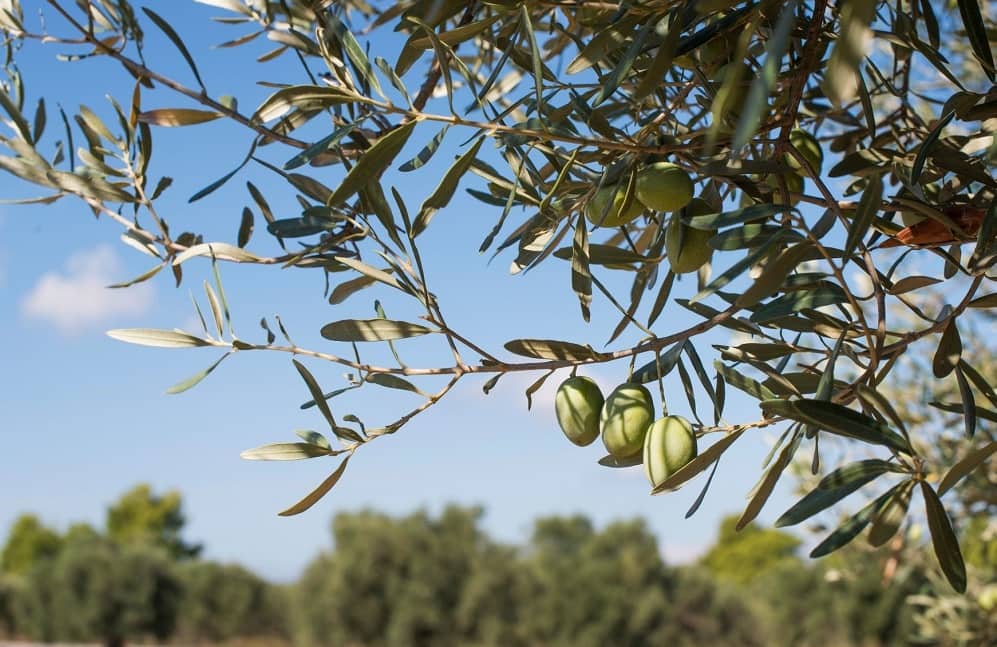
Olive oil, widely used in Italian cuisine, has ancient origins dating back to the dawn of the earliest civilizations. Indeed, the first evidence of the use of oil goes back to 4000 BC in Armenia, Palestine, and even India where, beyond food feed, it was also used as an ointment, for lamps and for therapeutic purposes. Later, in 2500 B.C., the famous Hammurabi code regulated its production and marketing, encouraging its spread throughout the Mediterranean basin. As a matter of fact, the Mediterranean area offers the ideal climatic conditions for growing olives.
This extraordinary fruit plant arrived in Italy around 1000 B.C. thanks to the Greeks, but its cultivation and production are due to the Etruscans who created the first form of oil, called eleiva. However, it was only thanks to the Romans that the techniques of cultivation and oil production were improved and refined, allowing it to spread to Northern Europe and all the conquered territories. This meant that the "yellow“ gold became an emblem in the thousand-year culture of the country, turning it into the symbol of the modern Mediterranean diet.
The Romans defined a very clear and precise classification based on oil quality: from oleum cibarium, of extremely poor quality, obtained from olives attacked by parasites) to oleum caducum of poor quality, obtained from olives picked up from the ground but in an advanced state of maturity; oleum sequens, second pressing oil; oleum flos (oil flower), first pressing oil; oleum maturum, produced from ripe black olives; oleum viride, made from olives turning colour and, finally, the "king“ in terms of quality, oleum ex albis ulivis, extracted from green olives.
Even if different, nowadays oil classification is largely based on the Romans'one, taking into account those standards measuring its quality.
Alongside the fall of the Roman Empire, oil also underwent a sort of decadence, and only around the year 1000, thanks to the insight of merchants and traders who realised its economic importance, it got its noble role again. The Renaissance was the turning point and Italy became a full-fledged olive oil producer, landing on the tables of European courts and nobles who couldn't renounce Italian extra virgin olive oil, with its unique and inimitable taste. In Florence, the Medici city's government gave an enormous boost to this sector, granting for free large areas of land to anyone wishing to grow olive trees. Tuscan olive oil became famous throughout the country and continued its steady rise until the 18th century, a golden age for the Italian olive sector. During this same period, the first olive trees also reached the New World thanks to some Franciscan missionaries. However, the real oil "landing" only occurred a century later, when its marketing was consolidated through Greek and Italian immigrants.
The tradition of Italian extra virgin olive oil
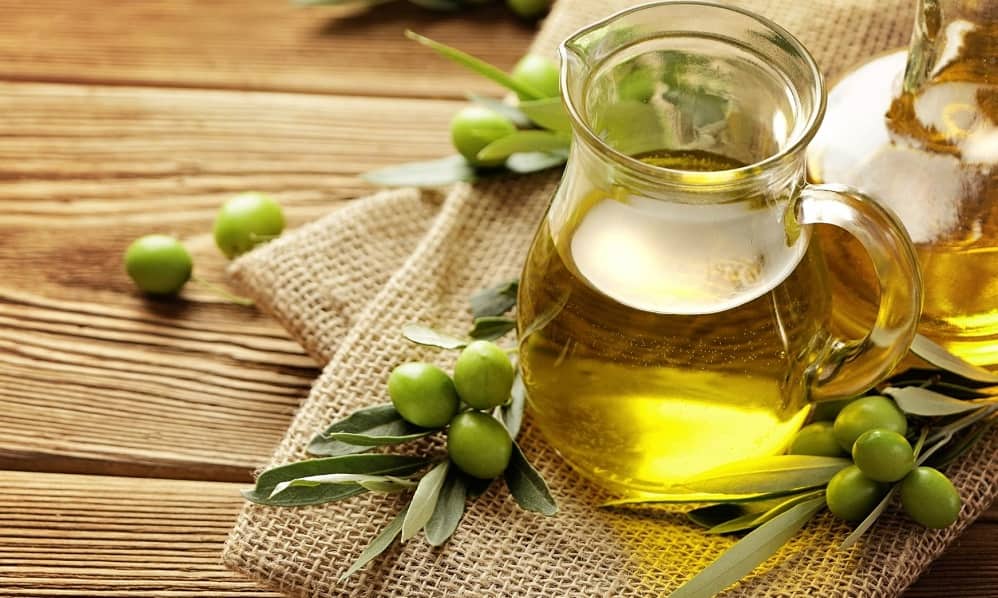
Tuscany, Liguria, Umbria, Marche, Abruzzo, Campania, Apulia, Calabria, and Sicily are the main oil producers, but almost every region can boast of its excellence with products characterized by a deep and indissoluble link with their own corresponding territories. Friuli Venezia Giulia, Veneto, Trentino, Lombardy, Emilia Romagna, Latium, Molise, Basilicata and Sardinia... a total of 42 PDO and 1 PGI certified extra virgin olive oils.
Currently, Italian extra virgin olive oil is one of the symbols of our food and wine tradition, among the most appreciated and exported products worldwide. Moreover, thanks to its content of vitamins, antioxidants, monounsaturated and polyunsaturated fatty acids, it is an essential food in the Mediterranean diet and for our health. According to several food studies, thanks to its numerous biological properties, oil has been given the reputation of being the "elixir of life".
An undisputed protagonist of Italian gastronomy, extra virgin olive oil is at the top of the world ranking of the best oils. This is due to the wide variety of olives, the area of origin, the climate, and the different production methods used.
Like wine, oil is not simply the product of the olive's transformation into the precious yellow-green liquid, but rather a combination of many factors that characterize its organoleptic properties.
The climate and temperature, the soil, and elements such as the sun and the wind play a key role in the entire production process. The olive tree, generally grown in warm and temperate areas such as the Mediterranean one, needs a sunny exposure to take advantage of the sun's rays, and soils defined as medium texture (sandy loam soils, silty loam soils, clay loam soils, and clay and silty loam soils) with an ideal Ph between 6.8 and 7.5.
Therefore, it is necessary to maintain the right balance and ensure a harmonious relationship with the surrounding environment.
3 major features of a quality extra virgin olive oil
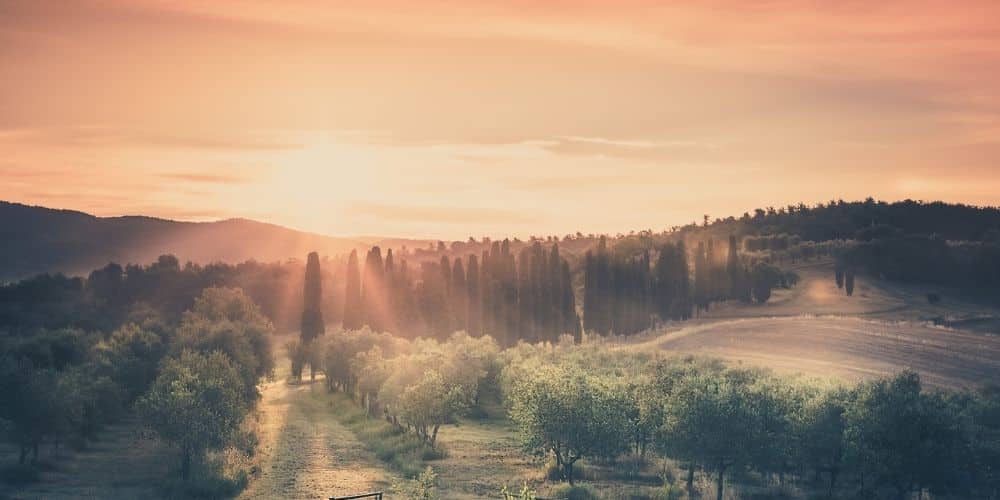
Among the main characteristics to be considered when choosing a quality oil, it must undoubtedly be:
-Fruity: EU Regulation n. 1348/2013 sets out the definition of fruity: "the set of olfactory sensations, depending on the variety of olives, characteristic of oil obtained from healthy and fresh fruit, green or ripe, perceived directly and/or retronasal". According to the regulations in force, oil can be marketed only if it is fruity. As a matter of fact, a fruity product is a guarantee of the excellent quality of the olive from which it has been extracted.
-Bitter: contrary to what one might think, bitterness is an essential feature of oil. In fact, this sensation is due to antioxidants, which are very important substances preventing oxidation of both the oil itself and the cells of the human body.
-Spicy: this sensation, felt in the throat, is due to the presence of polyphenols (natural antioxidants). This indicates that the oil has been produced from healthy olives and, therefore, the hotter it is, the better it is for your health.
Rich in olfactory and taste scents, oils with "soul" are of excellent quality but also have beneficial properties for our health, reducing the risk of cardiovascular disease and glycaemic peaks, favoring intestinal activity, containing cholesterol levels, preventing cellular aging... and much more.
Healthy and genuine food that, in addition to enhancing the taste of dishes, plays a protective role in preserving physical well-being, a true natural panacea!
Fattoria Triboli, Tuscany excellence
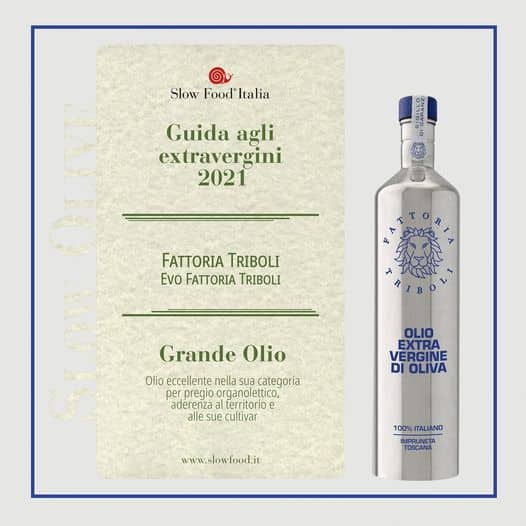
In Tuscany, in the delightful village of Impruneta on the edge of the Chianti region and dotted with vineyards and olive groves, Fattoria Triboli produces authentic Tuscan extra virgin olive oil.
With a deep respect for the environment and making sustainability the guiding principle, this product is made with passion, and it is the result of the daily commitment of a family infusing its values into every single drop of oil. With full respect for tradition, but also thanks to constant attention to innovation, Fattoria Triboli's extra-virgin olive oil is the result of authentic alchemy, where sun, clay soil, wind and altitude, as well as top-quality olives from different traditional Tuscan cultivars, come together to create an excellent oil.
A fruity oil, green in colour, evoking the aromatic notes of freshly cut grass, characterised by a bitter and spicy taste, worthy of the best EVO oils. With its key nutrients, such as antioxidants, unsaturated fatty acids and vitamins, as well as its unique flavour and excellent degree of purity, Triboli's 'green gold' is rich in nutritional and healing properties.
Fattoria Triboli is strongly rooted in the terroir of Impruneta, favouring and enhancing the ecosystem by respecting nature at every stage of production.
And it is with meticulous and scrupulous care that the entire production cycle is followed and carried out, from sowing to bottling. Olives are processed in a state-of-the-art oil mill and pressed within a few hours of harvesting. The quality of Triboli oil is guaranteed by the cold-pressing method, filtering and storage in stainless steel, which preserves its characteristics for longer.
In order to fulfil its commitment to scientific research and studies in collaboration with the "Master in Strategic Leadership towards Sustainability" at the Blekinge Institute of Technology in Sweden, the farm has drawn up an action plan, currently being implemented, to achieve environmental, social and economic sustainability.
The packaging chosen reflects this: a stainless steel bottle made from 60% recycled steel, which is hygienic and easy to wash, unbreakable and impact-resistant, as well as being long-lasting and totally recyclable. It also keeps the nutritional and organoleptic properties of the oil unaltered, protecting it from oxidation caused by contact with light and oxygen.
Try Fattoria Triboli oil, a top-quality oil that loves and respects nature!
FATTORIA TRIBOLIVia di Cappello, 44, 50023 Impruneta FI
About the author
Written on 21/04/2021


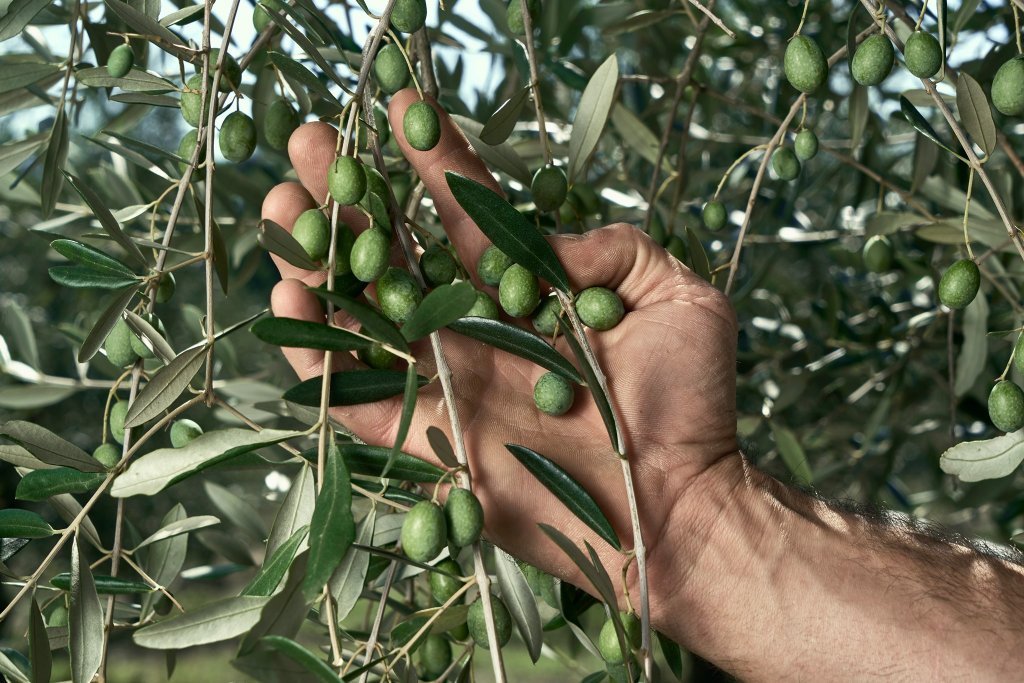

Alessandra Festa
Extra virgin olive oil is one of the main Italian excellences and a true protagonist of both Italian food tradition and the Mediterranean diet.